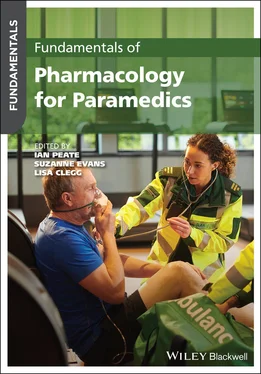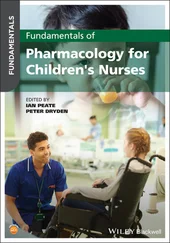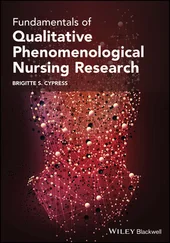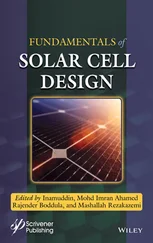Fundamentals of Pharmacology for Paramedics
Здесь есть возможность читать онлайн «Fundamentals of Pharmacology for Paramedics» — ознакомительный отрывок электронной книги совершенно бесплатно, а после прочтения отрывка купить полную версию. В некоторых случаях можно слушать аудио, скачать через торрент в формате fb2 и присутствует краткое содержание. Жанр: unrecognised, на английском языке. Описание произведения, (предисловие) а так же отзывы посетителей доступны на портале библиотеки ЛибКат.
- Название:Fundamentals of Pharmacology for Paramedics
- Автор:
- Жанр:
- Год:неизвестен
- ISBN:нет данных
- Рейтинг книги:3 / 5. Голосов: 1
-
Избранное:Добавить в избранное
- Отзывы:
-
Ваша оценка:
- 60
- 1
- 2
- 3
- 4
- 5
Fundamentals of Pharmacology for Paramedics: краткое содержание, описание и аннотация
Предлагаем к чтению аннотацию, описание, краткое содержание или предисловие (зависит от того, что написал сам автор книги «Fundamentals of Pharmacology for Paramedics»). Если вы не нашли необходимую информацию о книге — напишите в комментариях, мы постараемся отыскать её.
would also prove an indispensable resource for practicing paramedics seeking a practical, one-stop reference on a challenging subject.
Fundamentals of Pharmacology for Paramedics — читать онлайн ознакомительный отрывок
Ниже представлен текст книги, разбитый по страницам. Система сохранения места последней прочитанной страницы, позволяет с удобством читать онлайн бесплатно книгу «Fundamentals of Pharmacology for Paramedics», без необходимости каждый раз заново искать на чём Вы остановились. Поставьте закладку, и сможете в любой момент перейти на страницу, на которой закончили чтение.
Интервал:
Закладка:
Preface
The key aim of Fundamentals of Pharmacology for Paramedics is to provide the reader with an understanding of the essentials associated with pharmacology and paramedic practice so as to enhance patient safety and patient outcomes. This book can help readers improve and expand their expertise and self‐confidence within the field of paramedicine and enable them to recognise and respond appropriately to the needs of those they offer care and support to, wherever this may be. The contributors to the text are all experienced clinicians and academics who have expertise in their sphere of practice.
Pharmacology is the study of how drugs, medicines and substances work together with the body when they are being used for the management of illness, disease, pain relief and other conditions. This can be everything from drugs that are used in respiratory care to the action of medications used as a vaccine.
The paramedic scope of practice at the point of registration continues to be developed within pre‐registration programmes of study around the world, ensuring that the newly qualified paramedic has the required knowledge and skills to provide best practice healthcare to patients. In many countries, this also includes ensuring that pre‐registration paramedic students are ‘prescriber ready’ once they have successfully completed their undergraduate programme of study.
If undergraduate paramedic students are to offer care that is safe and effective, then they must be prepared in such a way that they become accountable practitioners who are able to carry out their role in a meaningful manner that adheres to professional standards and aligns with the law. Fundamentals of Pharmacology for Paramedics will help paramedics add to their repertoire of skills as they gain appropriate pharmacological knowledge. Whilst there is a need to ensure that emphasis is placed on the principles of safe drug administration in undergraduate curricula, there is also a need to ensure that students are provided with the pharmacological foundations associated with the bigger issues related to medicines management. Knowing how to study this subject effectively is about developing an effective workable learning strategy. Fundamentals of Pharmacology for Paramedics provides the reader with an overview of the key issues that can support them as they begin to understand and apply the complexities associated with pharmacology as well as the exciting challenges that are ahead of them.
The text integrates comprehensive knowledge of pharmacology enabling the reader to formulate a plan of care that can improve the overall health and wellbeing of the patient. When advising on and dispensing or administering medicines, this must be done within the limits of the individual’s education, training and competence, professional body guidance and other relevant policies and regulations. It is essential to ensure that you keep to the laws of the country in which you are practising.
The paramedic must know the names, mechanism of action, indications, contraindications, complications, routes of administration, side‐effects, interactions, dose and any specific administration considerations for a range of medications. They have to understand relevant pharmacology as well as the administration of therapeutic medications.
The chapters in this book offer a range of teaching and learning resources that can help you come to terms with the often complex area of pharmacology and paramedicine. The book can be used in a number of ways; for example, you may choose to read Chapters 1– 7first and then dip in and out of the remaining chapters as you need them. Trying to learn everything at once has the potential to cause confusion which can eventually result in a loss of confidence, affecting your ability to learn and assimilate. Avoid trying to learn large volumes of information and copious amounts of detail all at once; focus instead on only those details that can help you achieve your aims.
Often pharmacology modules, as part of the wider curriculum, will require the student to safely administer the appropriate medication, correctly monitor medicated patients in accordance with established protocols/policy, understand the drug’s mechanism of action, indication for use, routes of administration, how the drug is absorbed, distributed, metabolised and eliminated, contraindications, drug interactions and a lot more. Recognising each drug you use and learning the differences and similarities between drugs is key to understanding the fundamentals of pharmacology. Pharmacology is an important subject and it is vital that you effectively learn the various drugs, their categories, mechanisms of action, pharmacodynamics and pharmacokinetics. The 17 chapters in this book will help you come to terms with what is often seen as a complex and sometimes terrifying subject.
The paramedic scope of practice at the point of registration continues to be developed within pre‐registration programmes of study, ensuring that the newly qualified paramedic is fit for practice. The scope of practice for specialist, advanced and consultant paramedics is being defined and refined around the world. A sound understanding of the fundamentals of pharmacology related to paramedicine will help you attain the goals that you set today.
We hope you enjoy using this book as you develop personally and professionally. Having a detailed understanding of how drugs work and why they are given has the potential to help you become a great paramedic.
Ian Peate, London, UKSuzanne Evans, Newcastle, New South Wales, AustraliaLisa Clegg, New South Wales, Australia
Acknowledgements
Ian wishes to thank his partner Jussi Lahtinen for his unfailing encouragement and Mrs Frances Cohen for her ongoing support.
Suzanne would like to thank everyone who has contributed to the writing of this text at such a difficult time for health professionals.
Lisa wishes to thank her wife Jennie for her ongoing love and support.
Prefixes, suffixes and abbreviations
Prefix:A prefix is positioned at the beginning of a word to modify or change its meaning. Pre means ‘before’. Prefixes may also indicate a location, number, or time.
Suffix:The ending part of a word that changes the meaning of the word.
| Prefix or suffix | Meaning | Example(s) |
|---|---|---|
| a‐, an‐ | not, without | analgesic, apathy |
| ab‐ | from; away from | abduction |
| abdomin(o)‐ | of or relating to the abdomen | abdomen |
| acous(io)‐ | of or relating to hearing | acoumeter, acoustician |
| acr(o)‐ | extremity, topmost | acrocrany, acromegaly, acroosteolysis, acroposthia |
| ad‐ | at, increase, on, toward | adduction |
| aden(o)‐, aden(i)‐ | of or relating to a gland | adenocarcinoma, adenology, adenotome, adenotyphus |
| adip(o)‐ | of or relating to fat or fatty tissue | adipocyte |
| adren(o)‐ | of or relating to adrenal glands | adrenal artery |
| ‐aemia | blood condition | anaemia |
| aer(o)‐ | air, gas | aerosinusitis |
| ‐aesthesi(o)‐ | sensation | anaesthesia |
| alb‐ | denoting a white or pale colour | albino |
| ‐alge(si)‐ | pain | analgesic |
| ‐algia, ‐alg(i)o‐ | pain | myalgia |
| all(o‐) | denoting something as different, or as an addition | alloantigen, allopathy |
| ambi‐ | denoting something as positioned on both sides | ambidextrous |
| amni‐ | pertaining to the membranous fetal sac (amnion) | amniocentesis |
| ana‐ | back, again, up | anaplasia |
| andr(o)‐ | pertaining to a man | android, andrology |
| angi(o)‐ | blood vessel | angiogram |
| ankyl(o)‐, ancyl(o)‐ | denoting something as crooked or bent | ankylosis |
| ante‐ | describing something as positioned in front of another thing | antepartum |
| anti‐ | describing something as ‘against’ or ‘opposed to’ another | antibody, antipsychotic |
| arteri(o)‐ | of or pertaining to an artery | arteriole, arterial |
| arthr(o)‐ | of or pertaining to the joints, limbs | arthritis |
| articul(o)‐ | joint | articulation |
| ‐ase | enzyme | lactase |
| ‐asthenia | weakness | myasthenia gravis |
| ather(o)‐ | fatty deposit, soft gruel‐like deposit | atherosclerosis |
| atri(o)‐ | an atrium (especially heart atrium) | atrioventricular |
| aur(i)‐ | of or pertaining to the ear | aural |
| aut(o)‐ | self | autoimmune |
| axill‐ | of or pertaining to the armpit (uncommon as a prefix) | axilla |
| bi‐ | twice, double | binary |
| bio‐ | life | biology |
| blephar(o)‐ | of or pertaining to the eyelid | blepharoplast |
| brachi(o)‐ | of or relating to the arm | brachium of inferior colliculus |
| brady‐ | ‘slow’ | bradycardia |
| bronch(i)‐ | bronchus | bronchiolitis obliterans |
| bucc(o)‐ | of or pertaining to the cheek | buccolabial |
| burs(o)‐ | bursa (fluid sac between the bones) | bursitis |
| carcin(o)‐ | cancer | carcinoma |
| cardi(o)‐ | of or pertaining to the heart | cardiology |
| carp(o)‐ | of or pertaining to the wrist | carpal tunnel |
| ‐cele | pouching, hernia | hydrocele, varicocele |
| ‐centesis | surgical puncture for aspiration | amniocentesis |
| cephal(o)‐ | of or pertaining to the head (as a whole) | cephalalgy |
| cerebell(o)‐ | of or pertaining to the cerebellum | cerebellum |
| cerebr(o)‐ | of or pertaining to the brain | cerebrology |
| chem(o)‐ | chemistry, drug | chemotherapy |
| cholecyst(o)‐ | of or pertaining to the gallbladder | cholecystectomy |
| chondr(i)o‐ | cartilage, gristle, granule, granular | chondrocalcinosis |
| chrom(ato)‐ | colour | haemochromatosis |
| ‐cidal, ‐cide | killing, destroying | bacteriocidal |
| cili‐ | of or pertaining to the cilia, the eyelashes | ciliary |
| circum‐ | denoting something as ‘around’ another | circumcision |
| col(o)‐, colono‐ | colon | colonoscopy |
| colp(o)‐ | of or pertaining to the vagina | colposcopy |
| contra‐ | against | contraindicate |
| coron(o)‐ | crown | coronary |
| cost(o)‐ | of or pertaining to the ribs | costochondral |
| crani(o)‐ | belonging or relating to the cranium | craniology |
| ‐crine, ‐crin(o)‐ | to secrete | endocrine |
| cry(o)‐ | cold | cryoablation |
| cutane‐ | skin | subcutaneous |
| cyan(o)‐ | denotes a blue colour | cyanosis |
| cyst(o)‐, cyst(i)‐ | of or pertaining to the urinary bladder | cystotomy |
| cyt(o)‐ | cell | cytokine |
| ‐cyte | cell | leukocyte |
| ‐dactyl(o)‐ | of or pertaining to a finger, toe | dactylology, polydactyly |
| dent‐ | of or pertaining to teeth | dentist |
| dermat(o)‐, derm(o)‐ | of or pertaining to the skin | dermatology |
| ‐desis | binding | arthrodesis |
| dextr(o)‐ | right, on the right side | dextrocardia |
| di‐ | two | diplopia |
| dia‐ | through, during, across | dialysis |
| dif‐ | apart, separation | different |
| digit‐ | of or pertaining to the finger (rare as a root) | digit |
| ‐dipsia | suffix meaning ‘(condition of) thirst’ | polydipsia, hydroadipsia, oligodipsia |
| dors(o)‐, dors(i)‐ | of or pertaining to the back | dorsal, dorsocephalad |
| duodeno‐ | duodenum | duodenal atresia |
| dynam(o)‐ | force, energy, power | hand strength dynamometer |
| ‐dynia | pain | vulvodynia |
| dys‐ | bad, difficult, defective, abnormal | dysphagia, dysphasia |
| ec‐ | out, away | ectopia, ectopic pregnancy |
| ‐ectasia, ‐ectasis | expansion, dilation | bronchiectasis, telangiectasia |
| ect(o)‐ | outer, outside | ectoblast, ectoderm |
| ‐ectomy | denotes a surgical operation or removal of a body part; resection, excision | mastectomy |
| ‐emesis | vomiting condition | haematemesis |
| encephal(o)‐ | of or pertaining to the brain; also see cerebr(o)‐ | encephalogram |
| endo‐ | denotes something as ‘inside’ or ‘within’ | endocrinology, endospore |
| enter(o)‐ | of or pertaining to the intestine | gastroenterology |
| epi‐ | on, upon | epicardium, epidermis, epidural, episclera, epistaxis |
| erythr(o)‐ | denotes a red colour | erythrocyte |
| ex‐ | out of, away from | excision, exophthalmos |
| exo‐ | denotes something as ‘outside’ another | exoskeleton |
| extra‐ | outside | extradural haematoma |
| faci(o)‐ | of or pertaining to the face | facioplegic |
| fibr(o) | fibre | fibroblast |
| fore‐ | before or ahead | forehead |
| fossa | a hollow or depressed area; trench or channel | fossa ovalis |
| front‐ | of or pertaining to the forehead | frontonasal |
| galact(o)‐ | milk | galactorrhoea |
| gastr(o)‐ | of or pertaining to the stomach | gastric bypass |
| ‐genic | formative, pertaining to producing | cardiogenic shock |
| gingiv‐ | of or pertaining to the gums | gingivitis |
| glauc(o)‐ | denoting a grey or bluish‐grey colour | glaucoma |
| gloss(o)‐, glott(o)‐ | of or pertaining to the tongue | glossology |
| gluco‐ | sweet | glucocorticoid |
| glyc(o)‐ | sugar | glycolysis |
| ‐gnosis | knowledge | diagnosis, prognosis |
| gon(o)‐ | seed, semen; also, reproductive | gonorrhoea |
| ‐gram, ‐gramme | record or picture | angiogram |
| ‐graph | instrument used to record data or picture | electrocardiograph |
| ‐graphy | process of recording | angiography |
| gyn(aec)o‐ | woman | gynaecomastia |
| haemangi(o)‐ | blood vessels | haemangioma |
| haemat(o)‐, haem‐ | of or pertaining to blood | haematology |
| halluc‐ | to wander in mind | hallucinosis |
| hemi‐ | one‐half | cerebral hemisphere |
| hepat‐ (hepatic‐) | of or pertaining to the liver | hepatology |
| heter(o)‐ | denotes something as ‘the other’ (of two), as an addition, or different | heterogeneous |
| hist(o)‐, histio‐ | tissue | histology |
| home(o)‐ | similar | homeopathy |
| hom(o)‐ | denotes something as ‘the same’ as another or common | homosexuality |
| hydr(o)‐ | water | hydrophobe |
| hyper‐ | denotes something as ‘extreme’ or ‘beyond normal’ | hypertension |
| hyp(o)‐ | denotes something as ‘below normal’ | hypovolaemia |
| hyster(o)‐ | of or pertaining to the womb, the uterus | hysterectomy |
| iatr(o)‐ | of or pertaining to medicine, or a physician | iatrogenic |
| ‐iatry | denotes a field in medicine of a certain body component | podiatry, psychiatry |
| ‐ics | organised knowledge, treatment | obstetrics |
| ileo‐ | ileum | ileocaecal valve |
| infra‐ | below | infrahyoid muscles |
| inter‐ | between, among | interarticular ligament |
| intra‐ | within | intramural |
| ipsi‐ | same | ipsilateral hemiparesis |
| ischio‐ | of or pertaining to the ischium, the hip joint | ischioanal fossa |
| ‐ismus | spasm, contraction | hemiballismus |
| iso‐ | denoting something as being ‘equal’ | isotonic |
| ‐ist | one who specialises in | pathologist |
| ‐itis | inflammation | tonsillitis |
| ‐ium | structure, tissue | pericardium |
| juxta‐ (iuxta‐) | near to, alongside or next to | juxtaglomerular apparatus |
| karyo‐ | nucleus | eukaryote |
| kerat(o)‐ | cornea (eye or skin) | keratoscope |
| kin(e)‐, kin(o)‐, kinesi(o)‐ | movement | kinaesthesia |
| kyph(o)‐ | humped | kyphoscoliosis |
| labi(o)‐ | of or pertaining to the lip | labiodental |
| lacrim(o)‐ | tear | lacrimal canaliculi |
| lact(i)‐, lact(o) | milk | lactation |
| lapar(o)‐ | of or pertaining to the abdomen wall, flank | laparotomy |
| laryng(o)‐ | of or pertaining to the larynx, the lower throat cavity where the voice box is | larynx |
| latero‐ | lateral | lateral pectoral nerve |
| ‐lepsis, ‐lepsy | attack, seizure | epilepsy, narcolepsy |
| lept(o)‐ | light, slender | leptomeningeal |
| leuc(o)‐, leuk(o)‐ | denoting a white colour | leukocyte |
| lingu(a)‐, lingu(o)‐ | of or pertaining to the tongue | linguistics |
| lip(o)‐ | fat | liposuction |
| lith(o)‐ | stone, calculus | lithotripsy |
| ‐logist | denotes someone who studies a certain field | oncologist, pathologist |
| log(o)‐ | speech | logopaedics |
| ‐logy | denotes the academic study or practice of a certain field | haematology, urology |
| lymph(o)‐ | lymph | lymphoedema |
| lys(o)‐, ‐lytic | dissolution | lysosome |
| ‐lysis | destruction, separation | paralysis |
| macr(o)‐ | large, long | macrophage |
| ‐malacia | softening | osteomalacia |
| mammill(o)‐ | of or pertaining to the nipple | mammillitis |
| mamm(o)‐ | of or pertaining to the breast | mammogram |
| manu‐ | of or pertaining to the hand | manufacture |
| mast(o)‐ | of or pertaining to the breast | mastectomy |
| meg(a)‐, megal(o)‐, ‐megaly | enlargement, million | splenomegaly, megameter |
| melan(o)‐ | black colour | melanin |
| mening(o)‐ | membrane | meningitis |
| meta‐ | after, behind | metacarpus |
| ‐meter | instrument used to measure or count | sphygmomanometer |
| metr(o)‐ | pertaining to conditions of the uterus | metrorrhagia |
| ‐metry | process of measuring | optometry |
| micro‐ | denoting something as small, or relating to smallness | microscope |
| milli‐ | thousandth | millilitre |
| mon(o)‐ | single | infectious mononucleosis |
| morph(o)‐ | form, shape | morphology |
| muscul(o)‐ | muscle | musculoskeletal system |
| my(o)‐ | of or relating to muscle | myoblast |
| myc(o)‐ | fungus | onychomycosis |
| myel(o)‐ | of or relating to bone marrow or spinal cord | myeloblast |
| myri‐ | ten thousand | myriad |
| myring(o)‐ | eardrum | myringotomy |
| narc(o)‐ | numb, sleep | narcolepsy |
| nas(o)‐ | of or pertaining to the nose | nasal |
| necr(o)‐ | death | necrosis, necrotising fasciitis |
| neo‐ | new | neoplasm |
| nephr(o)‐ | of or pertaining to the kidney | nephrology |
| neur(i)‐, neur(o)‐ | of or pertaining to nerves and the nervous system | neurofibromatosis |
| normo‐ | normal | normocapnia |
| ocul(o)‐ | of or pertaining to the eye | oculist |
| odont(o)‐ | of or pertaining to teeth | orthodontist |
| odyn(o)‐ | pain | stomatodynia |
| ‐oesophageal, oesophag(o)‐ | gullet | gastro‐oesophageal reflux |
| ‐oid | resemblance to | sarcoidosis |
| ‐ole | small or little | arteriole |
| olig(o)‐ | denoting something as ‘having little, having few’ | oliguria |
| ‐oma (sing.), ‐omata (pl.) | tumour, mass, collection | sarcoma, teratoma |
| onco‐ | tumour, bulk, volume | oncology |
| onych(o)‐ | of or pertaining to the nail (of a finger or toe) | onychophagy |
| oo‐ | of or pertaining to an egg, a woman’s egg, the ovum | oogenesis |
| oophor(o)‐ | of or pertaining to the woman’s ovary | oophorectomy |
| ophthalm(o)‐ | of or pertaining to the eye | ophthalmology |
| optic(o)‐ | of or relating to chemical properties of the eye | opticochemical |
| orchi(o)‐, orchid(o)‐, orch(o)‐ | testes | orchiectomy, orchidectomy |
| ‐osis | a condition, disease or increase | ichthyosis, psychosis, osteoporosis |
| osseo‐ | bony | osseous |
| ossi‐ | bone | peripheral ossifying fibroma |
| ost(e)‐, oste(o)‐ | bone | osteoporosis |
| ot(o)‐ | of or pertaining to the ear | otology |
| ovo‐, ovi‐, ov‐ | of or pertaining to the eggs, the ovum | ovogenesis |
| pachy‐ | thick | pachyderma |
| paed‐, paedo‐ | of or pertaining to the child | paediatrics |
| palpebr‐ | of or pertaining to the eyelid (uncommon as a root) | palpebra |
| pan‐, pant(o)‐ | denoting something as ‘complete’ or containing ‘everything’ | panophobia, panopticon |
| papill‐ | of or pertaining to the nipple (of the chest/breast) | papillitis |
| papul(o)‐ | indicates papulosity, a small elevation or swelling in the skin, a pimple, swelling | papulation |
| para‐ | alongside of, abnormal | paracyesis |
| ‐paresis | slight paralysis | hemiparesis |
| parvo‐ | small | parvovirus |
| path(o)‐ | disease | pathology |
| ‐pathy | denotes (with a negative sense) a disease, or disorder | sociopathy, neuropathy |
| pector‐ | breast | pectoralgia, pectoriloquy, pectorophony |
| ped‐, ‐ped‐, ‐pes | of or pertaining to the foot; ‐footed | pedoscope |
| pelv(i)‐, pelv(o)‐ | hip bone | pelvis |
| ‐penia | deficiency | osteopenia |
| ‐pepsia | denotes something relating to digestion, or the digestive tract | dyspepsia |
| peri‐ | denoting something with a position ‘surrounding’ or ‘around’ another | periodontal |
| ‐pexy | fixation | nephropexy |
| phaco‐ | lens‐shaped | phacolysis, phacometer, phacoscotoma |
| ‐phage, ‐phagia | forms terms denoting conditions relating to eating or ingestion | sarcophagia |
| ‐phago‐ | eating, devouring | phagocyte |
| ‐phagy | forms nouns that denotes ‘feeding on’ the first element or part of the word | haematophagy |
| pharmaco‐ | drug, medication | pharmacology |
| pharyng(o)‐ | of or pertaining to the pharynx, the upper throat cavity | pharyngitis, pharyngoscopy |
| phleb(o)‐ | of or pertaining to the (blood) veins, a vein | phlebography, phlebotomy |
| ‐phobia | exaggerated fear, sensitivity | arachnophobia |
| phon(o)‐ | sound | phonograph, symphony |
| phot(o)‐ | of or pertaining to light | photopathy |
| phren(i)‐, phren(o)‐, phrenico | the mind | phrenic nerve, schizophrenia |
| ‐plasia | formation, development | achondroplasia |
| ‐plasty | surgical repair, reconstruction | rhinoplasty |
| ‐plegia | paralysis | paraplegia |
| pleio‐ | more, excessive, multiple | pleiomorphism |
| pleur(o)‐, pleur(a) | of or pertaining to the ribs | pleurogenous |
| ‐plexy | stroke or seizure | cataplexy |
| pneumat(o)‐ | air, lung | pneumatocele |
| pneum(o)‐ | of or pertaining to the lungs | pneumonocyte, pneumonia |
| ‐poiesis | production | haematopoiesis |
| poly‐ | denotes a ‘plurality’ of something | polymyositis |
| post‐ | denotes something as ‘after’ or ‘behind’ another | post‐operation, post‐mortem |
| pre‐ | denotes something as ‘before’ another (in [physical] position or time) | premature birth |
| presby(o)‐ | old age | presbyopia |
| prim‐ | denotes something as ‘first’ or ‘most important’ | primary |
| proct(o)‐ | anus, rectum | proctology |
| prot(o)‐ | denotes something as ‘first’ or ‘most important’ | protoneuron |
| pseud(o)‐ | denotes something false or fake | pseudoephedrine |
| psor‐ | itching | psoriasis |
| psych(e)‐, psych(o) | of or pertaining to the mind | psychology, psychiatry |
| ‐ptosis | falling, drooping, downward placement, prolapse | apoptosis, nephroptosis |
| ‐ptysis | (a spitting), spitting, haemoptysis, the spitting of blood derived from the lungs or bronchial tubes | haemoptysis |
| pulmon‐, pulmo‐ | of or relating to the lungs | pulmonary |
| pyel(o)‐ | pelvis | pyelonephritis |
| py(o)‐ | pus | pyometra |
| pyr(o)‐ | fever | antipyretic |
| quadr(i)‐ | four | quadriceps |
| radio‐ | radiation | radiowave |
| ren(o)‐ | of or pertaining to the kidney | renal |
| retro‐ | backward, behind | retroversion, retroverted |
| rhin(o)‐ | of or pertaining to the nose | rhinoplasty |
| rhod(o)‐ | denoting a rose‐red colour | rhodophyte |
| ‐rrhage | burst forth | haemorrhage |
| ‐rrhagia | rapid flow of blood | menorrhagia |
| ‐rrhaphy | surgical suturing | nephrorrhaphy |
| ‐rrhexis | rupture | karyorrhexis |
| ‐rrhoea | flowing, discharge | diarrhoea |
| ‐rupt | break or burst | erupt, interrupt |
| salping(o)‐ | of or pertaining to tubes, e.g. Fallopian tubes | salpingectomy, salpingopharyngeus muscle |
| sangui‐, sanguine‐ | of or pertaining to blood | exsanguination |
| sarco‐ | muscular, flesh‐like | sarcoma |
| scler(o)‐ | hard | scleroderma |
| ‐sclerosis | hardening | atherosclerosis, multiple sclerosis |
| scoli(o)‐ | twisted | scoliosis |
| ‐scope | instrument for viewing | otoscope |
| ‐scopy | use of instrument for viewing | endoscopy |
| semi‐ | one‐half, partly | semiconscious |
| sial(o)‐ | saliva, salivary gland | sialagogue |
| sigmoid(o)‐ | sigmoid, S‐shaped curvature | sigmoid colon |
| sinistr(o)‐ | left, left side | sinistrocardia |
| sinus‐ | of or pertaining to the sinus | sinusitis |
| somat(o)‐,somatico‐ | body, bodily | somatic |
| ‐spadias | slit, fissure | hypospadias, epispadias |
| spasmo‐ | spasm | spasmodic dysphonia |
| sperma(to)‐, spermo‐ | semen, spermatozoa | spermatogenesis |
| splen(o)‐ | spleen | splenectomy |
| spondyl(o)‐ | of or pertaining to the spine, the vertebra | spondylitis |
| squamos(o)‐ | denoting something as ‘full of scales’ or ‘scaly’ | squamous cell |
| ‐stalsis | contraction | peristalsis |
| ‐stasis | stopping, standing | cytostasis, homeostasis |
| ‐staxis | dripping, trickling | epistaxis |
| ‐stenosis | abnormal narrowing in a blood vessel or other tubular organ or structure | restenosis, stenosis |
| stomat(o)‐ | of or pertaining to the mouth | stomatogastric, stomatognathic system |
| ‐stomy | creation of an opening | colostomy |
| sub‐ | beneath | subcutaneous tissue |
| super‐ | in excess, above, superior | superior vena cava |
| supra‐ | above, excessive | supraorbital vein |
| tachy‐ | denoting something as fast, irregularly fast | tachycardia |
| ‐tension, ‐tensive | pressure | hypertension |
| tetan‐ | rigid, tense | tetanus |
| thec‐ | case, sheath | intrathecal |
| therap‐ | treatment | hydrotherapy, therapeutic |
| therm(o)‐ | heat | thermometer |
| thorac(i)‐, thorac(o)‐, thoracico‐ | of or pertaining to the upper chest, chest; the area above the breast and under the neck | thorax |
| thromb(o)‐ | of or relating to a blood clot, clotting of blood | thrombus, thrombocytopenia |
| thyr(o)‐ | thyroid | thyrocele |
| thym‐ | emotions | dysthymia |
| ‐tome | cutting instrument | osteotome |
| ‐tomy | act of cutting; incising, incision | gastrotomy |
| tono‐ | tone, tension, pressure | tonometer |
| top(o)‐ | place, topical | topical anaesthetic |
| tort(i)‐ | twisted | torticollis |
| tox(i)‐, tox(o)‐, toxic(o)‐ | toxin, poison | toxoplasmosis |
| trache(a)‐ | trachea | tracheotomy |
| trachel(o)‐ | of or pertaining to the neck | tracheloplasty |
| trans‐ | denoting something as moving or situated ‘across’ or ‘through’ | transfusion |
| tri‐ | three | triangle |
| trich(i)‐, trichia, trich(o)‐ | of or pertaining to hair, hair‐like structure | trichocyst |
| ‐tripsy | crushing | lithotripsy |
| ‐trophy | nourishment, development | pseudohypertrophy |
| tympan(o)‐ | eardrum | tympanocentesis |
| ‐ula, ‐ule | small | nodule |
| ultra‐ | beyond, excessive | ultrasound |
| un(i)‐ | one | unilateral hearing loss |
| ur(o)‐ | of or pertaining to urine, the urinary system; (specifically) pertaining to the physiological chemistry of urine | urology |
| uter(o)‐ | of or pertaining to the uterus or womb | uterus |
| vagin‐ | of or pertaining to the vagina | vagina |
| varic(o)‐ | swollen or twisted vein | varicose |
| vasculo‐ | blood vessel | vasculotoxicity |
| vas(o)‐ | duct, blood vessel | vasoconstriction |
| ven‐ | of or pertaining to the (blood) veins, a vein (used in terms pertaining to the vascular system) | vein, venospasm |
| ventricul(o)‐ | of or pertaining to the ventricles; any hollow region inside an organ | cardiac ventriculography |
| ventr(o)‐ | of or pertaining to the belly; the stomach cavities | ventrodorsal |
| ‐version | turning | anteversion, retroversion |
| vesic(o)‐ | of or pertaining to the bladder | vesical arteries |
| viscer(o)‐ | of or pertaining to the internal organs, the viscera | viscera |
| xanth(o)‐ | denoting a yellow colour, an abnormally yellow colour | xanthopathy |
| xen(o)‐ | foreign, different | xenograft |
| xer(o)‐ | dry, desert‐like | xerostomia |
| zo(o)‐ | animal, animal life | zoology |
| zym(o)‐ | fermentation | enzyme, lysozyme |
Abbreviations used in prescriptions
Интервал:
Закладка:
Похожие книги на «Fundamentals of Pharmacology for Paramedics»
Представляем Вашему вниманию похожие книги на «Fundamentals of Pharmacology for Paramedics» списком для выбора. Мы отобрали схожую по названию и смыслу литературу в надежде предоставить читателям больше вариантов отыскать новые, интересные, ещё непрочитанные произведения.
Обсуждение, отзывы о книге «Fundamentals of Pharmacology for Paramedics» и просто собственные мнения читателей. Оставьте ваши комментарии, напишите, что Вы думаете о произведении, его смысле или главных героях. Укажите что конкретно понравилось, а что нет, и почему Вы так считаете.












